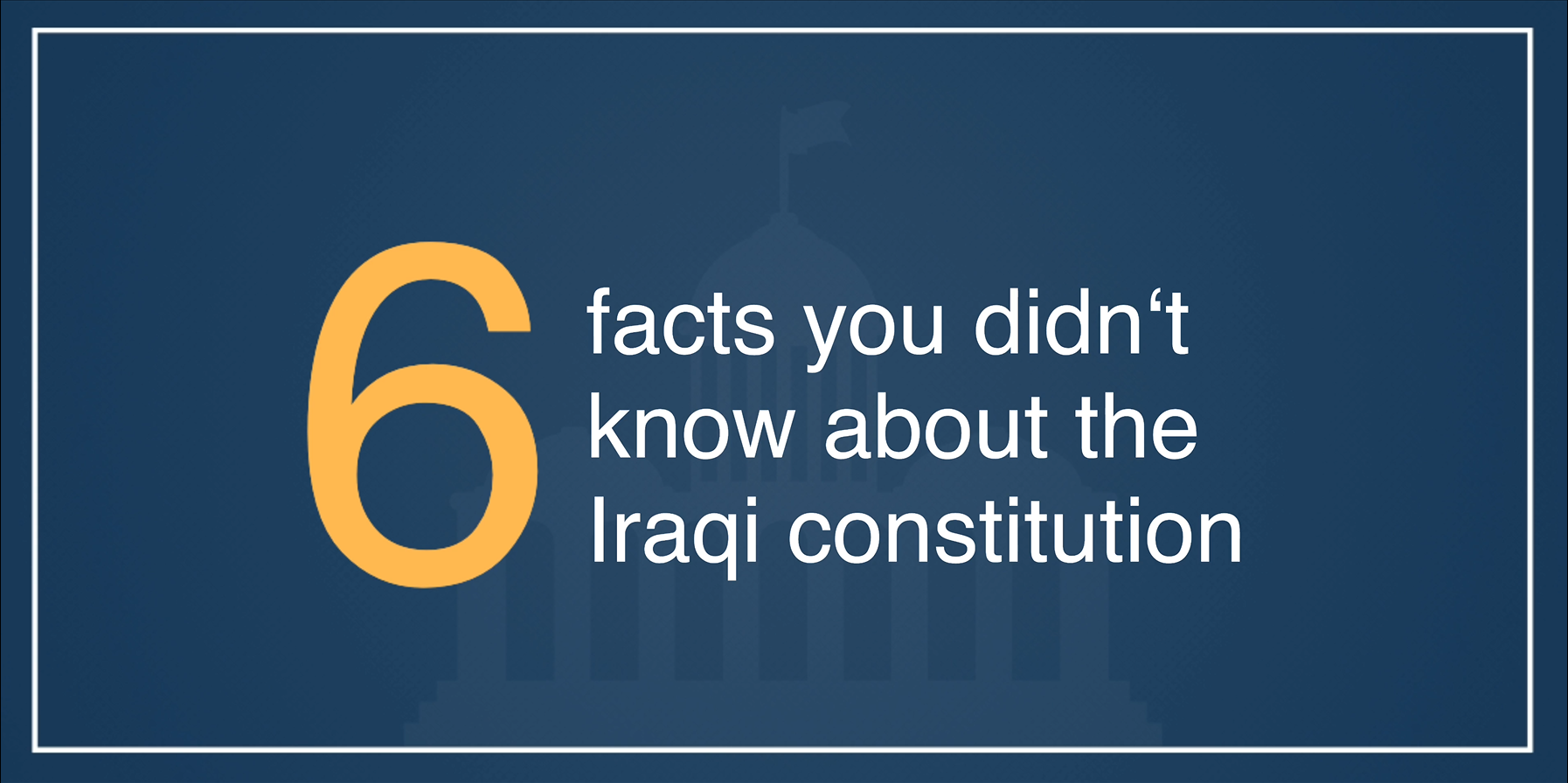After the fall of Saddam Hussein and his Ba’ath regime, the Iraqi population was finally free from dictatorship and oppression. This led to the ratification of a new constitution in 2005 that was approved by 80% of the Iraqi electorate. The constitution protects the rights of all ethnic and religious minorities, and safeguards the Kurdistan Region’s autonomy.
Here are 6 facts you need to know about the Iraqi constitution.
1. The Iraqi constitution guarantees the federal, decentralized structure of Iraq


In accord with article 1 and article 116, the Iraqi constitution recognizes its structure to be a federal one consisting of regions and governorates. One of those regions is the Kurdistan Region with its capital Erbil, also known as Hewler.
2. Kurdish is one of the official languages of Iraq

The official languages of Iraq are Kurdish and Arabic. Moreover, any region has the right to make a local language an additional official one.
3. The constitution protects Iraq’s ethnic and religious diversity

Constitutionally, Iraq is a nation of multiple ethnicities, religions, and sects, where everyone is equal before the law without discrimination. The majority of people in the Kurdistan Region are Muslims. However, there is also a significant number of people with Christian, Yazidi or Mandean faith.
4. The Kurdistan Region and all its authorities are recognized as a federal region

The Kurdistan Regional Government has constitutionally recognised authority over the provinces of Erbil, Dohuk, Slemani and Halabja.
5. The Kurdistan Region can adopt its own constitution

The Kurdistan Region is a parliamentary democracy with its own regional parliament. Furthermore, it has the legitimacy to implement its own authorities and legislations.
6. All of the Kurdistan Region’s legislation enacted since 1992 is safeguarded by the Iraqi constitution

When the Iraqi forces left Kurdistan in October 1991, the Region became de-facto autonomous. This led to the establishment of the semi-autonomous Kurdistan Regional Government in 1992, which is recognised in the Iraqi constitution of 2005.
